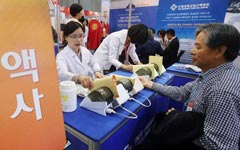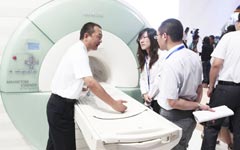Asia is revolutionizing the global medical enterprises with cost-saving and quality measures
It may be the best time ever to be living right now. Over the past four decades, the life expectancy of Asians has increased by more than a decade to more than 70 years, thanks to the development of the healthcare industry.
|
 |
|
 |
"In the last century, the biggest challenges we had were communicable disease and infectious diseases. Now we are moving into the new century. Our biggest challenges now are NCDs (non-communicable diseases) such as obesity and mental health problems," says Ara Darzi, chairman of the Institute of Global Health Innovation at Imperial College London and executive chairman of the World Innovation Summit for Health (WISH). The latest WISH seminar was held in December in Doha, Qatar.
Darzi says although the challenges in tackling diseases are similar around the world, adapting to innovations differs. "What's interesting about Asia is that the uptake seems to be quicker in some parts of this region," he says.
China has done a remarkable job in healthcare system reform, he believes, especially in tackling the shortage of per capita healthcare resources.
"The human capital shortage is a big challenge in Asia," he says. "If big countries such as China run the healthcare system the same way Europe does, it will probably take another 20 years to have enough general practitioners."
That in many ways has driven China and some other Asian countries to think in a different way, coming up with "workforce-reducing innovations", which include giving patients technologies to substitute the need for more doctors.
Also, it is practical to use nurse practitioners and other clinicians, rather than purely relying on doctors, he points out.
"Patient engagement will be the blockbuster drug of the 21st century, which will help countries shepherd resources," said Susan Edgman-Levitan, executive director of the Stoeckle Center for Primary Care Innovation at Massachusetts General Hospital, at the WISH meeting.
|
 |
 |
